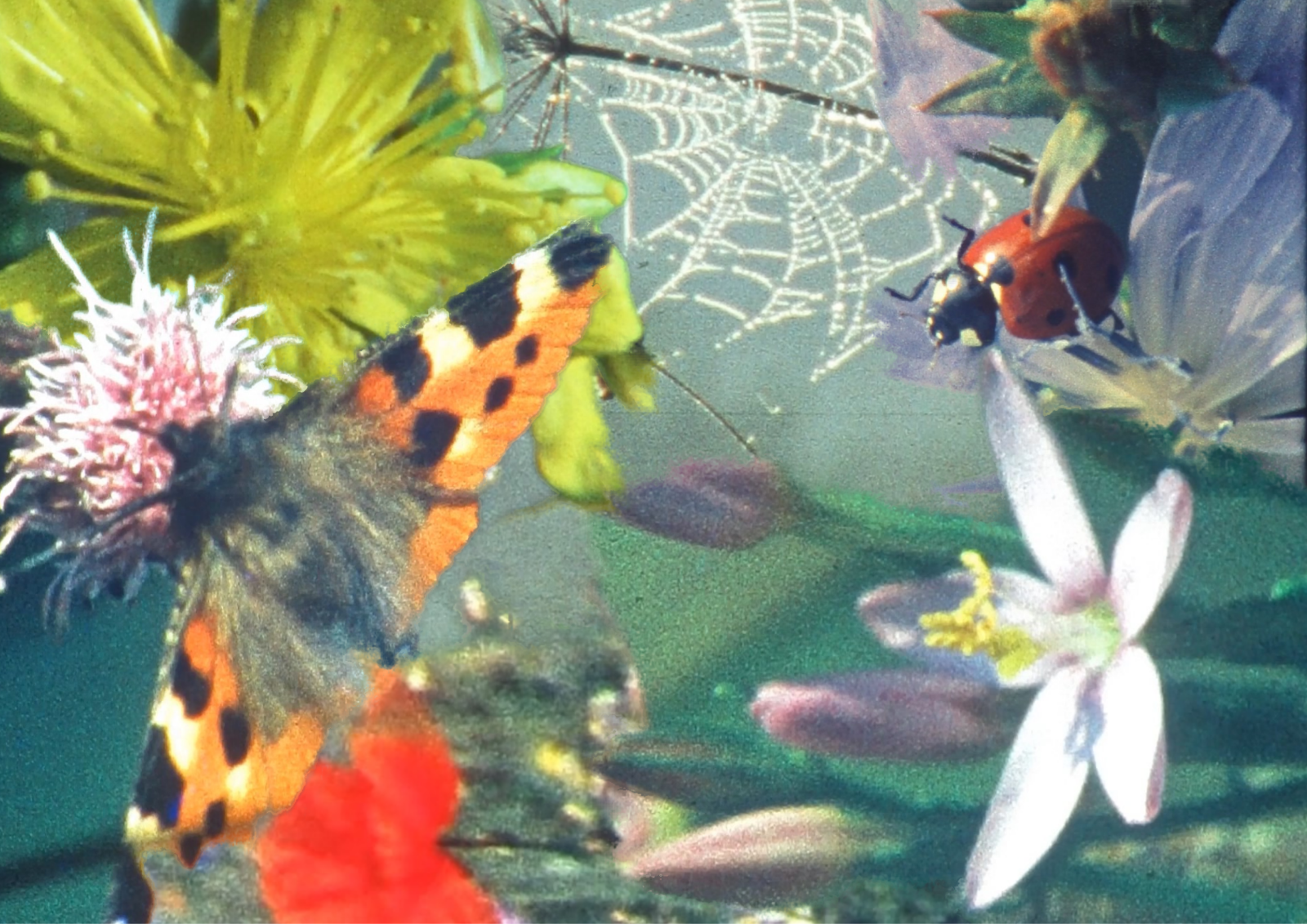DIY World of Orest Bachmaha. Conversation and Film Screening
21-22.2.2023, 19:00
Traven / Pekarska 1c
We invite you to the screening of Orest Bachmaha's films and a conversation about the author's work, ecology, DIY culture, and independent media practices. The Center for Urban History organizes the event in cooperation with the Traven', a space for underground music culture.
Amateur film technology made it possible for alternative cinema to appear, which did not follow the rules of professional cinema and the film industry system. Artists quickly mastered cinema for their own experiments and creativity, not only with the image but also with the technique. However, in the Ukrainian context, the work of such authors remained marginalized and underestimated, if at all given space for development. On the one hand, this happened because of the inflexible institutional mechanisms and the compromised image of amateur cinema as something second-rate. And on the other hand, it was due to the unwillingness of authors to have anything to do with the system. A side effect of this independence is that today we know almost nothing about alternative cinema and media art in Ukraine in the second half of the twentieth century.
The practices of Orest Bachmaha are an example of creative freedom that combines media, technology, and ecology but also is humorous. His best films were made in the 1970s and 1980s. They are distinguished by their attentiveness to nature, the details of the world around us, and technical scrupulousness. It is nature, the connection with it, and the observation of its changes that are the main themes of his works. Through his films, Orest Bachmaha shows his way of interacting with the environment and places himself and his viewpoint in the center of the plot.
Orest Bachmaha (1943-2021) is an artist, photographer, amateur filmmaker, poet, inventor, and craftsman from Vynnyky. He combined his creativity with his love for technology and ecology and tried to create things he could use himself. His films were digitized and included in the collection of the Urban Media Archive at the Center for Urban History.
Some of the author's silent films were soundtracked in 2020 as part of the [unarchiving] program in collaboration with musicians Regina Zheleznyakova (Regina Collage) and Pavlo Olefirenko (Pilikayu).
The event will consist of two parts:
On Tuesday, February 21, at 19:00, we will have a conversation with Oleksandr Makhanets and Pavlo Olefirenko about the author and the new soundtrack of his films. After that, we will watch the short film Portrait of Orest Bachmaha (directed by Olha Povoroznyk) and a retrospective of his films: "The Colors of Summer," "All of This Is Still There," My Weekend," "Pepe," "The Invisible Man," "A Story That Might not Have Happened," "Homo Sapiens."
On Wednesday, February 22, from 18:00 to 23:00, the retrospective will be continuously screened in the " Traven " lower hall.
Entrance to the events is free.
The Colors of Summer, early 1970s, 13 minutes
This is the author’s first film. It records careful observation of changes in the life cycles of flora and fauna that occur in the garden near his house in Vynnyky. Originally, the tape was silent. In 2020, Regina Zheleznyakova (Regina Collage) and Pavlo Olefirenko (Pilikayu) wrote music for it.
My Weekend, 1978, 14 minutes
Self-portrait film: the author documents himself and his own vision of the world and nature around him to give the viewer this perspective and to encourage them to be attentive to what surrounds us. For the phonogram, the author compiled the music by composer Jean-Michel Jarre and his own recordings of the sounds of nature, which he made especially for the tape.
All of This Is Still There, mid 1970s, 17 minutes
This film is a manifesto of Orest Bachmaha, who, 50 years ago, called for the preservation of nature. The tape is accompanied by recordings of birds singing and music by Jean-Michel Jarre, Enzo Caroli, and Antonio Vivaldi and ends with poetry by Myroslava Kulyk.
Pepe, mid 1970s, 9 minutes
An epic comedy about a cyclist and doping, where the author involved his comrades and neighbors. Despite the entertaining nature, we had to work on the tape to carefully prepare and think through the script, props, and shooting locations. The film is complemented by new music written by Regina Zheleznyakova (Regina Collage).
The Invisible Man, mid 1970s, 7 min
Another humorous comedy by the author is based on a simple and common film reception with the disappearance of a man in the frame. The main characters’ escape and persecution set the film’s dynamics. It is already characteristic of Orest Bachmaha’s works to fit himself into the film. Still, his hero is distanced from the event and depicted with his dog Pooh above the nonsense taking place around. In 2020, the work was voiced by the music of Regina Zheleznyakova (Regina Collage) and Pavel Olefirenko (Pilikayu).
A Story That Might Not Have Happened, early 1980s, 1 minute
An ironic metafilm that ridicules popular movies and soap operas. In the fictional credits, the author hid some jokes, but also his own name and surname, and to add to the pretense, he voiced the work with a fragment of the meaningful ballet “Swan Lake” at that time.
Homo Sapiens, 1970s, 1 minute
A concise and philosophical film that portrays the eternal problem of humanity, both on general and individual levels. Which one? You will learn when viewing. The music for the film was written by Pavlo Olefirenko (Pilikayu).
Credits
Cover Image: Collage by Mariia Nizhehorodtseva
